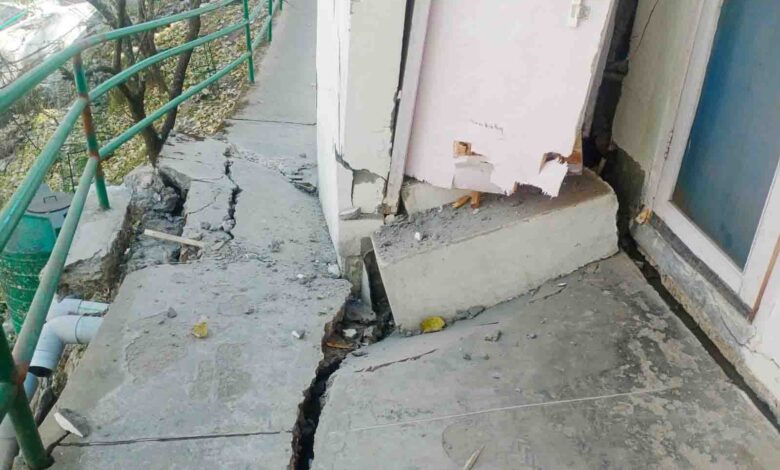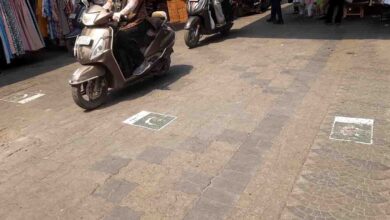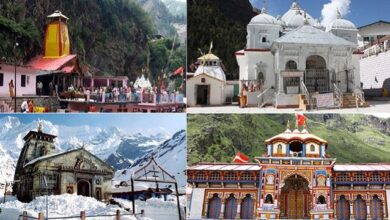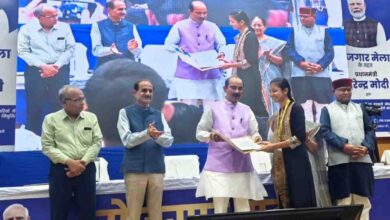Major tragedy on the anvil in sinking Joshimath: experts

Advocate immediate relocation of families of the city to safer places to avoid losses
Saturday, 07 January 2023 | PNS | Dehradun
Alarmed by the intensity of the land subsidence in the geologically sensitive city of Joshimath, experts have sounded an alert and advised that the State administration should start relocating people to safer places immediately. The residents of the city with a population of more than 50,000 are living in constant fear of a major disaster in recent times with cracks appearing in the majority of the buildings and underground water oozing out from the cracks on the ground. Geologist and professor at Veer Chandra Singh Garhwali university of horticulture and forestry, S P Sati categorically stated that immediate concern of the administration should be to save precious human lives. He said that we should remain prepared for the worst and added that the time to take the opinion of the scientists for taking measures to save the city has passed. “ Now it is more of an administrative job. The city cannot be saved now, the disaster can strike anytime now. The administration should start evacuating people without delay. It can categorise the city in three categories. Those in category A should be immediately relocated, the people residing in houses under category B should be relocated after say a week’s time while those in the last category should be evacuated after that,’’ he said.
Sati who is well acquainted with the area and has conducted a detailed geological study of the city and surrounding areas said that the government should immediately deploy a very senior officer in Joshimath to oversee relocation of the population. He said that locals point out that land subsidence has increased in the city after last year’s disaster in Dhauliganga and claim that the water which is coming out from the cracks in the city is the water which had got trapped in the tunnels of the project. Sati advised that isotope studies can corroborate or deny their claims.
Former scientist at Wadia Institute of Himalayan Geology, Dehradun, D P Dobhal told The Pioneer that the situation is really worrying and immediate steps should be taken to address the issue. He said that the administration has started relocating some families but more are needed to be transferred. Dobhal however denied that the whole city would collapse. He said that the city is located on the glacial moraine which is unstable, loose and not very thick. Dobhal said that the locals point out that the water which is coming out of cracks is muddy which means that the tunnel of the power project has affected the aquifer and its water has now found a way out in the city. He said that the tunnels are being dug from the sides of Selang and Tapowan and they have the potential to further destabilise the city situated on an unstable platform.
Commenting on the causes of the problem the head of department of Geology at Dr Nityanand Himalayan Research and Study Centre, Doon University, Vipin Kumar said that a committee of 17 experts headed by then Commissioner of Garhwal M Mishra in the year 1976 considered the paleo-landslide material in the region as a major cause of instability. He said that the satellite imagery also indicates growing slope toe failure, possibly leading to retrogression. Kumar said that the contribution of anthropogenic impacts involving population increase, continuing rapid construction to cater high tourist influx and infrastructural projects cannot be denied for the present situation.
When contacted by The Pioneer, the Professor at HNB Garhwal University, Srinagar Y P Sundriyal accepted that the situation is serious and affected people should be relocated. He said that the Joshimath city has no sewer line and people have built soak-pits due to which water is percolating beneath the city. Sundariyal stressed that the sewer line should be built in the city and a building policy should be prepared and strictly implemented.






